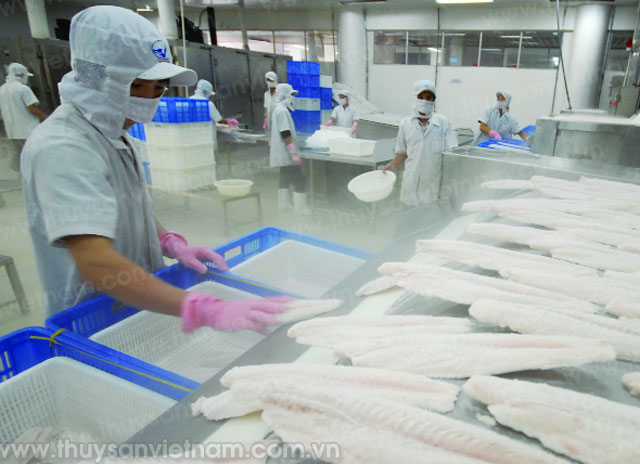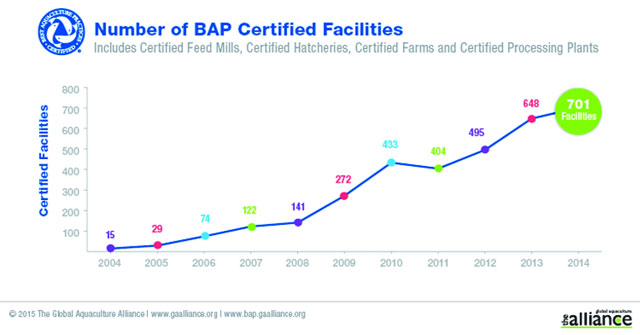International certified products plays an important role in some markets due to its reliability. However, international certificates just facilitates the bussiness at openning time meanwhile quality is the critical factor.
 3rd party certification has essentially become a minimum requirement for the marketplace. It is important to remember though that one of the overarching concerns of retailers is to protect their reputation and the credibility of their brand name. 3rd party certification schemes such as Best Aquaculture Practices (BAP) certification help achieve this objective.
3rd party certification has essentially become a minimum requirement for the marketplace. It is important to remember though that one of the overarching concerns of retailers is to protect their reputation and the credibility of their brand name. 3rd party certification schemes such as Best Aquaculture Practices (BAP) certification help achieve this objective.
It is viewed by retailers as an additional assurance that the products they are sourcing are safe to eat, respect animal health and welfare and have minimal negative impacts on the environment and society. We at GAA believe at the farm level there are many benefits associated with responsible aquaculture practices such as higher survivability of each grow-out cycle or the need for less therapeutants because of a well-documented animal health and welfare plan.We will be working to help Pangasius farmers identify a business case for responsible practices through training in conjunction with the Viet Nam PangasiusAssociation (VNPA). Additionally, the Global Aquaculture Alliance has is piloting group certification and just initiated the iBAP program to help small farmers achieve Best Aquaculture Practices (BAP) certification.

Traceability helps manage product flows effectively – Photo: Ngoc Trinh
3rd party certification as a pre-requisite is now the norm with many retailers, however bear in mind certification only facilitates it does not guarantee market access. BAP or other 3rd party certifications are just one of the factors retailers consider when sourcing product. Quality is another critical factor.
Farms meeting VietGAP regulations will be well positioned to pursue BAP certification as they will have a much better awareness of responsible aquaculture practices on an operational level. The Global Aquaculture Alliance (GAA) has signed an Memorandum of Understanding (MoU) with the Viet Nam Pangasius Association (VNPA). As part of the MoU, GAA will provide training in jointly with VNPA to help Pangasius farms build upon VietGAP and incorporate the addition responsible practices necessary for BAP certification.

Sustainability needs to be defined first. For our purposes let’s define it as economically viable along with minimal negative environmental and social impacts. We have heard that perhaps approximately 20% of the Pangasius sector in Vietnam is 3rd party certified. This leaves 80% without 3rd party certification. We have much work to do reduce the potential for disease and the negative cumulative impacts of the Pangasius sector. This will necessitate including the remaining 80% of non-certified farms. GAA welcomes VietGAP as a positive development to build a foundation of responsible practices for the entire Pangasius industry in Vietnam. We are looking forward to working closely with VNPA to engage this 80% and build uppon VietGAP to achieve BAP certification. On an economic level, 3rd party certification schemes such as BAP help facilitate market access which contributes to economic sustainability. Thus economic sustainability is dependent upon building market demand for safe, environmentally and socially responsible quality Pangasiusproducts.
The intention of Decree 36 is to help improve the image of Pangasius in the marketplace, which is a right action. The BAP certification program assists in creating a positive image through stringent food safety, animal health and welfare, environmental and social standards for feed mills, hatcheries, farms and processing plants. Furthermore, the use of additives is strictly addressed as a food safety issue in BAP standards. The entire Vietnamese Pangasius sector will need to address both to improve the overall image of Pangasius.